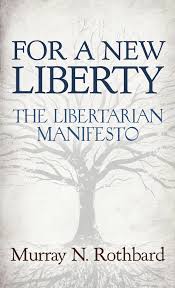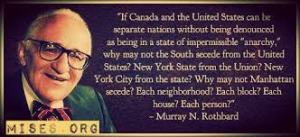Curmudgeons.net
Every normal man must be tempted, at times, to spit on his hands, hoist the black flag, and begin slitting throats. –H.L. Mencken
The Joy of Ancillary Reading
 For years my reading habits have been – shall we say – random. I flit from topic to topic and between nonfiction, fiction, and literature. The closest thing to having a pattern to my reading is that I tend to hear that someone is reading book X and it sounds interesting, so when I finish the book I am reading, I move to book X. I also tend to read books from the bibliography of previous books I have read – or those mentioned in interviews by authors I respect. The easy way to tell if I enjoy an author or appreciate the reading appetite of a friend is to see if we share any books in common. This year, however, two of my friends had the ridiculous idea of making a reading list. Of course, I decided it made much more sense to have a plan of attack for my reading and began to assemble my own list.
For years my reading habits have been – shall we say – random. I flit from topic to topic and between nonfiction, fiction, and literature. The closest thing to having a pattern to my reading is that I tend to hear that someone is reading book X and it sounds interesting, so when I finish the book I am reading, I move to book X. I also tend to read books from the bibliography of previous books I have read – or those mentioned in interviews by authors I respect. The easy way to tell if I enjoy an author or appreciate the reading appetite of a friend is to see if we share any books in common. This year, however, two of my friends had the ridiculous idea of making a reading list. Of course, I decided it made much more sense to have a plan of attack for my reading and began to assemble my own list.
I had heard for some time about Paul Theroux and his book, The Great Railroad Bazaar, from several friends over the years and had not yet read it, so this seemed a good starting point for the creation of the list. I also decided that I wanted to balance my reading of nonfiction and fiction. As I found out about more and more travel writing that I wanted to read, I decided to balance the travel writing and the nonfiction. Finally, the more I thought about the idea of travel and journeys, I began to think about my philosophical journey. I realized that there are several ‘classics’ of the traditions I have embraced that I have not yet read. Among these is Murray Rothbard’s For a New Liberty.
 I am only in the third chapter of the book and have been absolutely astounded by the clarity and insight of Rothbard’s manifesto. Of course I have read many Rothbard articles and a few of his smaller books (What Has Government Done to Our Money? and The Case Against the Fed) and found them to be both articulate and sound. They prepared me for some of the wit and the ease of reading that Rothbard offers. Reading those works did not, however, prepare me for the densely packed interweaving of philosophy, history, and politics that makes up the first few chapters of For a New Liberty. At first I found myself reading a few paragraphs, asking several questions about the content, and sitting in thought for several minutes before moving on. Then I started taking notes of points I wanted to investigate further – was the naming of ‘The Right’ and ‘The Left’ truly just a coincidence of seating around the time of the French Revolution? Did the New Left really steal the term ‘Progressive’ from the classical liberals, and was it really initially linked to an embrace of the Industrial Revolution? If the result of sculpting clay is in essence a ‘homesteading’ of the clay, do the same ideas apply to intellectual ‘property’? Can you ‘homestead’ a musical note? A particular rhyme?
I am only in the third chapter of the book and have been absolutely astounded by the clarity and insight of Rothbard’s manifesto. Of course I have read many Rothbard articles and a few of his smaller books (What Has Government Done to Our Money? and The Case Against the Fed) and found them to be both articulate and sound. They prepared me for some of the wit and the ease of reading that Rothbard offers. Reading those works did not, however, prepare me for the densely packed interweaving of philosophy, history, and politics that makes up the first few chapters of For a New Liberty. At first I found myself reading a few paragraphs, asking several questions about the content, and sitting in thought for several minutes before moving on. Then I started taking notes of points I wanted to investigate further – was the naming of ‘The Right’ and ‘The Left’ truly just a coincidence of seating around the time of the French Revolution? Did the New Left really steal the term ‘Progressive’ from the classical liberals, and was it really initially linked to an embrace of the Industrial Revolution? If the result of sculpting clay is in essence a ‘homesteading’ of the clay, do the same ideas apply to intellectual ‘property’? Can you ‘homestead’ a musical note? A particular rhyme?
All of this thinking, questioning, and note taking has brought me full circle. I now have a list of ancillary reading longer than this post. This is much the same with many of the other books in my reading list. In fact, I have now altered the list to include different books at least 5 times.
While I found much joy in plotting and planning this year’s reading, I am finding its expansion and revision to be just as enjoyable. Of course there is a lesson here – the whittling away of the dead wood and the nurturing of the new tender shoot are necessary in both gardening and in our intellectual development. Perhaps an occasional return and examination of the fundamentals and source materials of our beliefs can be a catalyst for revision and future growth.




